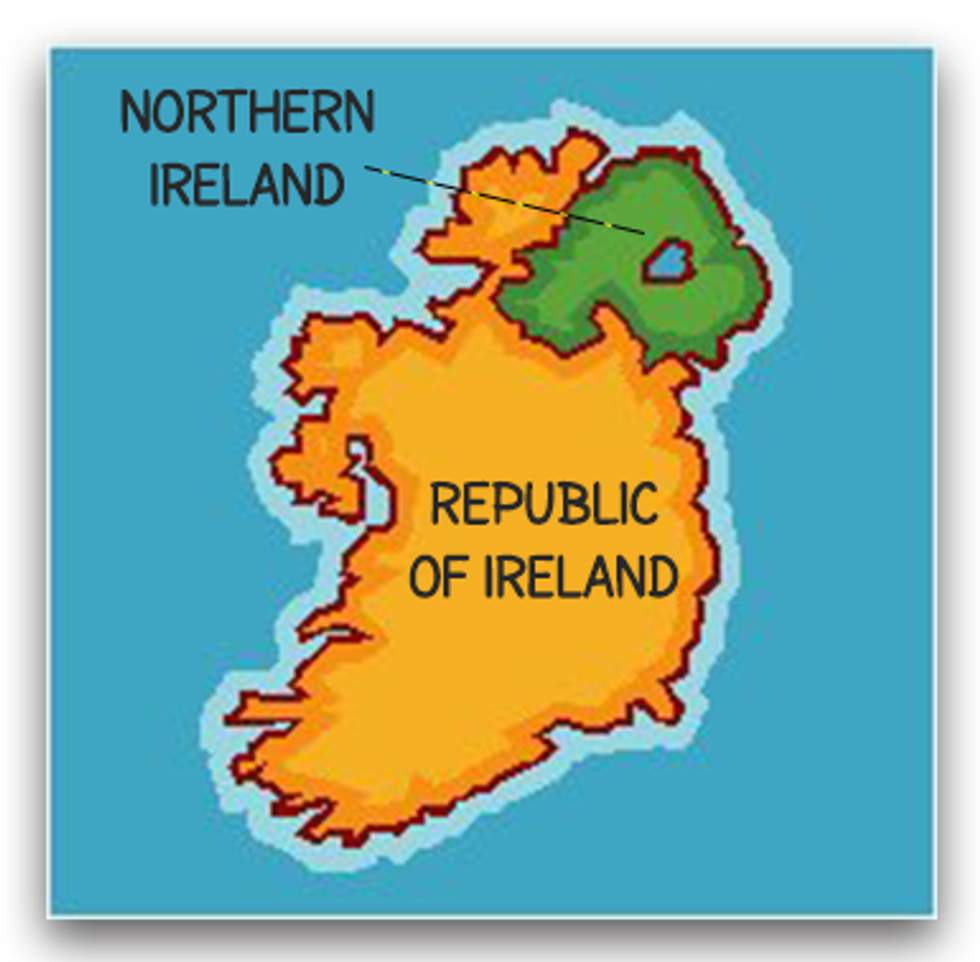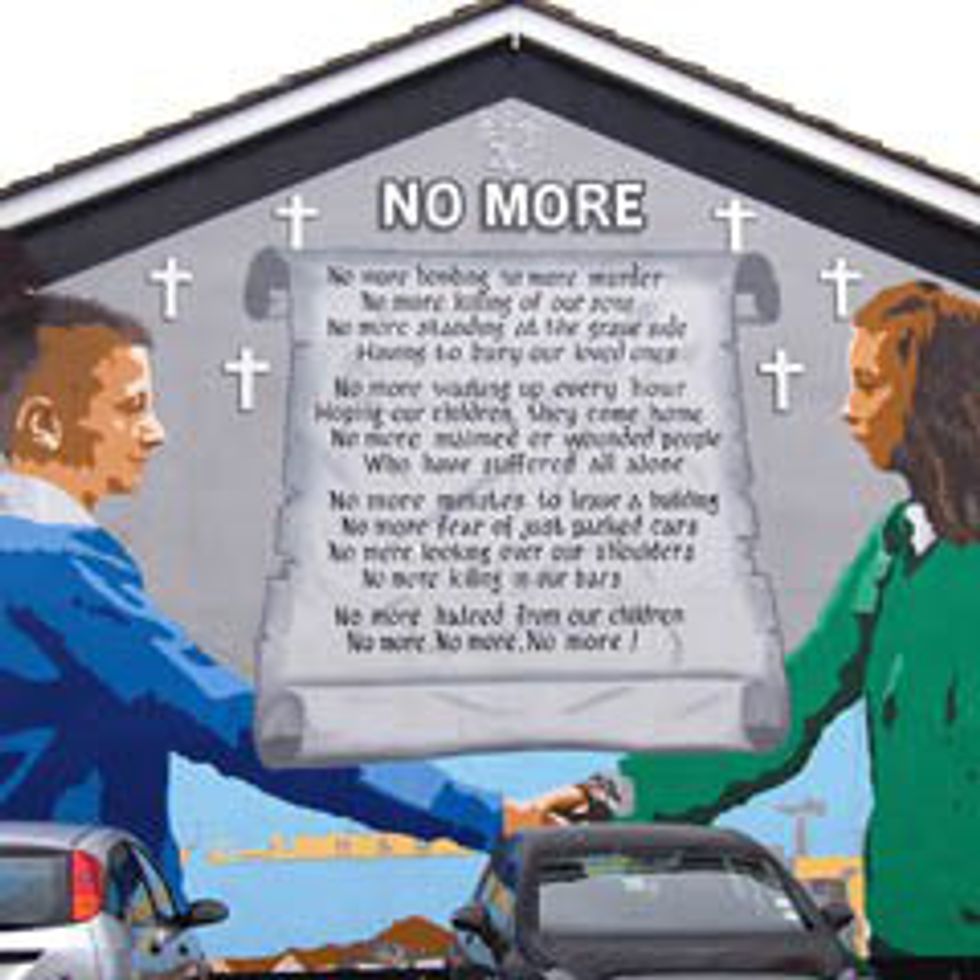Nothing feels more rewarding than taking time to do what you love, while changing lives in the process. The Ulster Project is an organization many may have briefly (if at all) heard about, but often have no idea what it really is. For me, it's an incredible opportunity that changed not only my own life, but the lives of many teens as well.
Historical Background
The origins of problems in the northern region of Ireland stretch centuries back to 1167, when England first laid roots in the area.
During the 1600s, two bloody religious conflicts known as the Irish Confederate Wars (1641–53) and the Williamite War led by William of Orange (1689–91), both of which resulted in Protestant victories, created a deeper wedge between the two religions that inhabited the island.
After over a century of continued violence and rebellion, the Government of Ireland Act was then passed in May 1921, splitting Ireland into two. This is how Northern Ireland was born.
The Troubles
In the 1970s, violence escalated as many bombings, armed battles, hunger strikes, and attacks ensued from both sides. This time period was known as The Troubles. It was unacceptable to marry or date outside your religion, unsafe to say which side you stood for, unheard of to have friends of the other religion, and it even became risky to state your own profession, as often they held a religious undertone depending what it was.
A Much More Peaceful Era
The light had not been turned out on tensions in the region, which resonate to this day. But as a result of several initiatives, most specifically the 1994 paramilitary ceasefires in Northern Ireland and the Good Friday Agreement of 1998, a much more peaceful era has since emerged.
The Ulster Project and U.S. Efforts for Peace
In 1975, following an exchange program in Connecticut, Reverend Kerry Waterstone, an Anglican priest, worked with church leaders to form a program to work to change the attitudes of teens from Northern Ireland for a more peaceful future between Catholics and Protestants. Thus, The Ulster Project was born.
The Ulster Project and Me
I never knew how much one organization could teach me, until I was involved with this one. As a teen, I was more concerned about matching my toe nail polish to my finger nail polish, or how a boy in school liked my friend rather than me. But when we lined up to meet our host sisters and brothers from Northern Ireland at the airport, that all changed.
There we kids who had seen first hand, the problems between religions in their communities, which are often segregated like many of their schools. Many had rarely spoken to others from the opposing religion, because they hadn't had the chance to until this moment. As an American teenager, it's hard to consider the problems that occur in other countries, or to comprehend issues that teens the same age may be dealing with bigger than our own. I realized just how blessed I was, and just how much we needed to change the state of other countries when, on the fourth of July, one teen spoke to my mom, saying, "This is amazing. Why don't we have one of these?" The moment in shell shocking when you're in it, because I genuinely cannot come to understand why they don't have freedom as we do in the United States - a freedom that I often take for granted.
That group of kids soon became my family. Lives and perspectives were changes, especially my own. I keep in contact with them regularly, and I know I can count on them for anything. But the day they went home, I knew I wanted to be a counselor one day above almost anything else - just once - because I wanted to change the minds and lives of even one kid as my group had done for me.
I've traveled to Northern Ireland and have seen the separation of communities in large areas like Belfast with my own eyes. "If someone approaches you and asks you your religion," my hostess said to me, "say you don't have one. It's safer." While in some families and communities, religion is nothing more than a personal quality, and judgment comes from who you are in your heart, in others, it is a wall of division labeling someone as unequal.
There is something that always brings me back to this organization, and it must for others as well, because it continues annually. It changes people's minds, but more importantly, it gives teenagers a real chance to change themselves to become peacemakers. One teen I am a co-counselor for this summer (and my fellow counselors are easily the most amazing people with the kindest hearts I've ever met as well) said to us, that "pain and listening to the words of judgment will never do anyone any good. Our differences are what make us who we are, and loving each other starts when we begin to see that everyone is a work of art - unique and one-of-a-kind." I couldn't be more thankful, nor agree more with that statement.
Ultimately, The Ulster Project changed my life for the better. Not only did it give me a chance to understand the historical violence and conflict of another country, as well as broaden my horizons further than the Ohio river, but it also gave me a better sense of who I am altogether. I am blessed to have met every person I have through this amazing organization, because from each and every one, I've learned something that has allowed me to see the work of art he or she truly is, and encouraged me to become the kinder person I am today.























